GOLD Learning Latest in Lactation Online Symposium 2021
GOLD Learning is excited to introduce a new lactation focused symposium to our annual events! The GOLD Learning Latest in Lactation Online Symposium 2021 provides an opportunity for even more evidence based continuing education for lactation professionals. This year's focus is on the changing landscape of the lactation profession.
Learn more about the way the profession is evolving and dive into important topics such as mentoring our future colleagues, and how to apply a multidisciplinary, equitable and sustainable approach to lactation practice. You'll also learn more about the art of virtual assessment for oral dysfunction, how to embody healing informed care and the importance of understanding and teaching parents that infant crying is communication not manipulation.
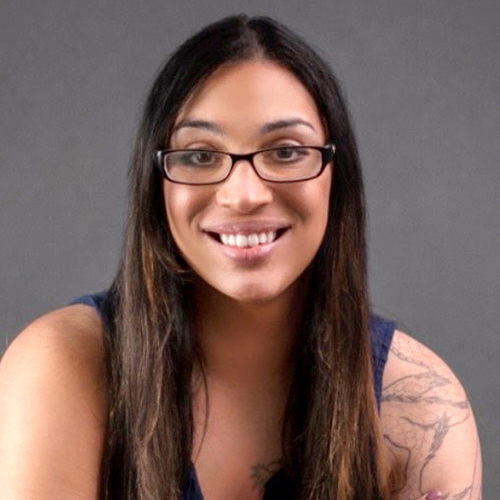

Shondra Mattos is an IBCLC, Entrepreneur & Speaker who delivers progressive, up-to-date lectures that challenge the current standard of Lactation Care. She is widely regarded as the go-to source for those looking for clear, understandable clinical knowledge.
In 2018, Shondra rebranded her lactation practice Mattos Lactation and provided location-independent lactation support to families across the country. In 2020 she founded Lactnerd LLC with the focus of helping healthcare providers gain knowledge while conquering the intimidation of learning the complex science of Lactation.
Through her companies- Lactnerd & Mattos Lactation - she provides tools, resources, education & mentoring to aspiring and established lactation professionals across the USA.
1.Summarize the difference between telehealth lactation visits & in person consult and identify some limitations of virtual visits.
2. Identify opportunities in their intake process to get information that will lead to more thorough assessment of oral function & develop strategies for pre visit assessment.
3. Describe the essential components and flow of a virtual consult that ensure all necessary information is obtained.
4.Identify strategies for creating an effective, comprehensive, multidisciplinary-focused care plan post virtual visit.
This presentation will cover skills & strategies of conducting assessments of oral dysfunction in a telehealth setting, a situation many Lactation providers were thrusted into due to Covid-19. Through real life examples of processes & strategies I use in my location-independent practice which specializes in oral dysfunction, the learner will gain practical insight to improve the quality of the virtual lactation visits they provide.
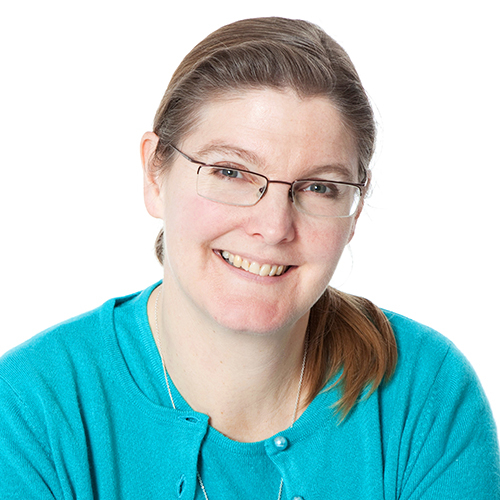

Helen Gray MPhil IBCLC is Joint Coordinator of the UK Steering Group of the World Breastfeeding Trends Initiative (WBTi). In 2017 she and Clare Meynell IBCLC jointly received the Award for Outstanding Contribution to Breastfeeding from the Lactation Consultants of Great Britain (LCGB), for leading the UK’s first WBTi assessment of infant feeding policies and programmes.
Helen is an international speaker on ethics and conflicts of interest. She represents La Leche League of Great Britain on the UK Baby Feeding Law Group, which works to bring the International Code of Marketing of Breastmilk Substitutes into UK law. She is also Policy and Advocacy Lead for Lactation Consultants of Great Britain, and previously co-chaired LCGB’s Communications Team.
Helen’s background in anthropology and human evolution has influenced her interest in how breastfeeding, and the way we nurture our babies, are influenced by both human biology and culture.
Her current advocacy focus is the need for strong policies to protect infant feeding in emergencies. She currently serves on the Advisory Panel for a London Food Resilience research project with Oxford University.
In her spare time, she can be found sculling on the River Thames.
1. Describe the history and development of the IBCLC© profession.
2. Apply their knowledge of the use of technology and the internet to improve their practice, within professional and ethical boundaries.
3.Construct a sound human rights foundation for their work supporting breastfeeding families.
The profession of lactation consultant has grown around the world and has evolved enormously since its inception in 1985. At first, the development of the profession provided skilled breastfeeding counsellors with a role that aligned with the medical model, provided a career pathway, and provided evidence of lactation skills and experience.
Over the years, the certification has grown and now there are over 33,000 International Board Certified Lactation Consultants© (IBCLC©) in 125 countries with the exam now offered in 17 languages. Lactation consultants are now recognised at national and global levels as providers of expert lactation care, and they work within a “landscape” of varied roles and qualifications, each of which brings their own important skill set. IBCLCs play many roles, ranging from advocate to clinical expert, from policy consultant to researcher. The profession has evolved in response to sociocultural change and global issues. One major change has been the increasing importance of technology and the internet, driven partly by the fact that the consumers of breastfeeding care are the most internet involved generation in history, with a particularly rapid transition in response to the COVID-19 pandemic. Major shifts have included the recognition of structural racism, health disparities, inequities in health care and in breastfeeding support, the importance of building a more diverse workforce, recognition of the gendered nature of lactation care and the need for inclusion for people of all genders, breastfeeding as a reproductive right and as a human right of the breastfeeding dyad, and the impact of how babies are fed on many other spheres, including climate change and public health.
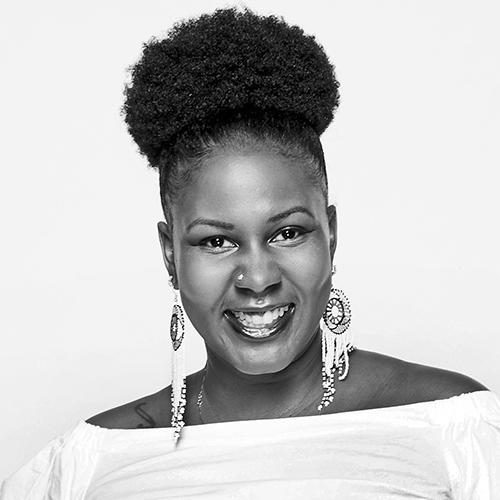

TaNefer is an IBCLC, Maternal Health Strategist and Healer with over 15 years of experience in supporting families through birth, breastfeeding and postpartum. She has a background in psychology and Health education with an emphasis in community health and early career experience in counseling, social services and family advocacy. She brings a wealth of knowledge and experience as she helps her clients identify their challenges and lovingly guides them through a plan to overcome them. She has the ability to work with diverse populations and tailors support to fit the needs of each unique person or group. She educates parents, families and professionals on lactation, breastfeeding and maternal healing. She is also a researcher, serving as a Community Advisory Board member to the UCSF Preterm birth initiative and is also the Community Researcher and Relations consultant to the SACRED Birth Study. She has designed, implemented and evaluated programs in maternal equity and lactation and is the creator of the "Teach me how to breastfeed" song and viral music video. TaNefer Lumukanda Camara is also a Co-founder B.L.A.C.K Course.
1.List disciplines that can collaborate with lactation specialists to support breastfeeding.
2. Discuss challenges in supporting populations with multiple needs and high risk.
3. Create a plan for reaching marginalized communities and populations at high risk and high need for lactation support.
It’s been a decade since the Surgeon General’s call to action to support breastfeeding. While great strides have been made to improve breastfeeding rates in the US, diverging societal conditions, disparate birth outcomes and changing family dynamics have necessitated adjustment and adaptation of more inclusive and multifaceted approaches to lactation support. With up to 34% of birthing people having experienced a traumatic birth, one study has shown how the effect on breastfeeding can go in either direction. If we factor in housing instability, mental health and race/immigration status we see greater disparities and/or differing needs according to the target population. However, the paradox is that these issues are not mutually exclusive, therefore a one size fits all approach is not sufficient. The COVID-19 Pandemic shed light on pre-existing gaps and disparities in this field and forced us to reimagine what breastfeeding promotion, protection and support should and can be. Implementing a multi-disciplinary plan to approach breastfeeding and lactation should be the trend moving forward. In this presentation you will learn how to:
Identify disciplines that can collaborate with lactation specialists to support breastfeeding promotion.
Discuss challenges in supporting populations with multiple needs and high risk.
Strategize a plan for reaching marginalized communities and populations at high risk and high need for lactation support.
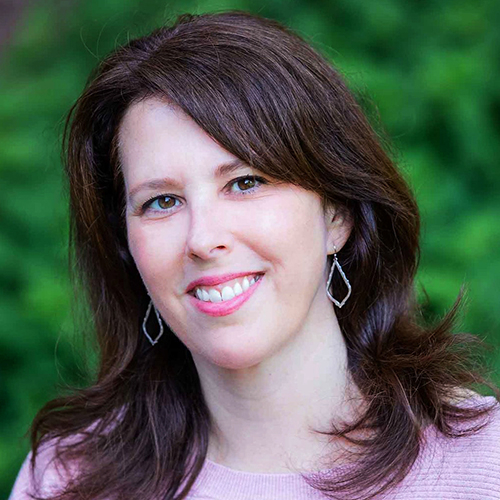

Allison Walsh IBCLC LCCE FACCE is an International Board Certified Lactation Consultant (2006), Lamaze Certified Childbirth Educator (2000), and and doula (2000) in private practice in New York City. She is one of the three founders of the Lactation Learning Collective, which offers education and support to those on the pathway toward certification as International Board Certified Lactation Consultants along with families in need of lactation support. She trains childbirth educators as a Co-Director of the NYC Lamaze Childbirth Educator Program and is a past president of Lamaze. Allison has represented Lamaze International as a delegate to the United States Breastfeeding Committee since 2004, and has served in various leadership and committee roles. Allison is a member of the New York City Breastfeeding Leadership Council, the New York Lactation Consultant Association, and an active La Leche League Leader. She co-chaired the Save the Birthing Center Committee which was a group of professionals, advocates and consumers who fought valiantly but unsuccessfully to stop the closure of the Mount Sinai West (formerly Roosevelt) Birthing Center in New York City. Prior to the birth of her first child, Allison was a political consultant and community organizer. Skills from that “past life” are useful in all aspects of her work in the birth world. She is a graduate of Syracuse University and mother of three formerly breastfed children. Allison thinks that babies are the most interesting of all people and never underestimates the power of a good cup of tea, fresh air, and fresh bed linen.
1. Explain the necessity for and benefits of mentoring, for mentees and mentors alike.
2. Describe the requirements for the International Board of Lactation Consultant Examiners (IBCLE) Pathway 3 (Mentorship with an IBCLC).
3. Create a multi-faceted and individualized experience for mentees, while also addressing one's own personal and professional needs.
The possibility of serving as a mentor can feel perfectly comfortable to some people, while overwhelming and frightening to others. This presentation will discuss the steps to becoming a mentor and fostering a productive mentoring relationship to grow the lactation care profession. Join one of the founders of NYC's Lactation Learning Collective for an in-depth look at the why’s and how’s of mentoring the next generation. Learn about IBLCE’s requirements and how to smooth the process and make it fulfilling for both mentees and mentors.
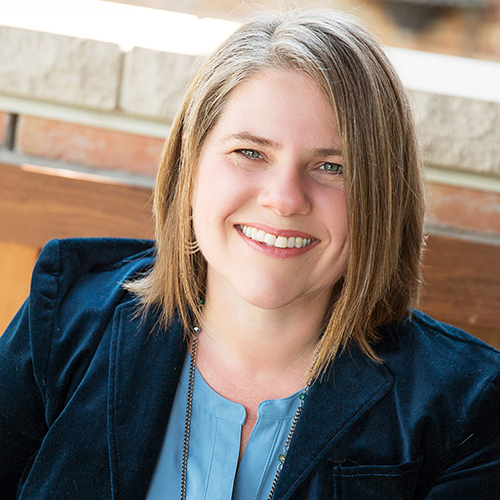

Karen Laing, IBCLC, AMT is a Mindfulness Based Stress Reduction (MBSR) teacher with a background in reproductive health care. As a practitioner over the last 25 years, Karen has cared for families as a trauma-informed perinatal educator, a Board-Certified Lactation Consultant, and as a midwife. As an organizational leader, she is the founder and CEO of Birthways where she has played a role in creating innovative maternal/child service models incorporating perinatal education, home-based doula care, lactation services and perinatal mental health programs. She and her team are currently working to build the Okkanti platform, a transformative application that tackles disparities by providing care coordination, digital health tools, health education and access to maternal health supports. As a teacher of mindfulness and caregiving, she has taught and mentored providers throughout her career and is the creator of the Compass of Mindful Caregiving, 6 Qualities of Embodied Mindfulness, and 40 – second Compassion Initiatives, toolkits such as the Cup of Kindness for family caregivers and a number of programs designed to improve the ways we take care of one another. She founded WisdomWay Institute in 2017 to better share the tools that support improved safety, respect and compassion in care relationships while preventing burnout.
Karen believes that systemic change involves many facets, but that we can begin with our moment-to-moment interactions.
1. Describe the potential of Healing Informed interactions as a response to individual and collective trauma.
2. List 6 qualities that are central to the delivery of Healing Informed Care/Trauma Informed Care.
3. Describe simple awareness practices that over time, build our capacity to embody qualities that support safety, dignity, trust and compassion in care relationships and within our cultures.
Trauma-Informed Care (TIC) foundations establish that qualities such as trust, respect, compassion, and self-regulation on the part of the practitioner are essential to creating the conditions that would translate into ‘safety,’ ‘trustworthiness,’ ‘mutuality,’ and ‘choice.’
But how do we develop these qualities?
In many ways, we have an ideal in our imagination for this quality of personhood that ‘delivers’ trauma sensitive care, but we often fail to explore how exactly one cultivates and maintains an approach that is not just ‘informed’ but embodied.
By briefly reviewing the history and limitations of trauma-informed care and exploring the emerging themes at the intersection of trauma-healing, social justice, and somatic studies, we will define Healing Informed Care (HIC) and what the framework asks of us in our care roles.
As we learn the ‘what’ of healing-informed approaches, we will uncover the ‘why’ and the ‘how.’ Participants will emerge with a practice map for building skills that not only make Healing Informed Care possible, but skills that support meaningful self-monitoring and self-care, critically important to buffer against stress and burnout in these professions. By building an intimate and compassionate awareness of our own patterned responses, we unleash the potential to better understand and to attend to the bodies that we are in, and to naturally build ‘beloved community’ where safety, dignity and care are more readily available in service of healing.


Katrien Nauwelaerts graduated as a prehistoric archaeologist in 2005. She's the mother of three breastfed children and the administrator of the Dutch breastfeeding-website Borstvoeding Aardig, https://borstvoeding.aardig.be. Katrien worked as a volunteer breastfeeding-counsellor, provincial coordinator and training manager for the Belgian breastfeeding organisation Borstvoeding vzw between 2010-2014. Up tot 2018 she was the founder and president of Aardig Leven vzw, a non profit ecological organisation. In 2013 she became an IBCLC. Since 2013 she's working as a lactation consultant at her own private practice Borstvoeding Aardig. She became a nutritionist and a herborist in 2014. Katrien shares her experiences and knowledge on lactation consulting as a public speaker since 2014.
Topic: Breastfeeding and The Use Of Herbs - [View Abstract]
Topic: Young Mothers and Breastfeeding in Belgium - [View Abstract]
1. Explain what is normal crying behavior in a baby.
2. List examples of how we can help parents to understand their baby.
3. Describe the tools we can provide to parents to learn how to respond to their crying baby.
There is scientific research that says that breastfeeding duration shortens when parents experience their baby as a baby who cries a lot.
There are all kinds of medical reasons why a baby is crying. Crying is a way of communication for a baby. It's a cry for help.
But what if there are no obvious medical reasons for a baby's crying behavior?
This lecture explains sociological and anthropological factors that can influence crying behavior in babies.
Sometimes parents have false expectations about parenting and baby behavior. Sometimes cultural assumptions make parents believe they have a crying baby when they actually haven't. And some cultural or anthropological parameters can strengthen the crying behaviour in a baby. Learn more about normal newborn crying behaviour and how to help parents understand their newborn.
Accreditation
CERPs - Continuing Education Recognition Points:
Applicable to International Board Certified Lactation Consultants (IBCLCs), Certified Lactation Counsellors (CLCs), Certified Lactation Educators (CLEs), Childbirth Educators (CBEs) and doulas. This activity is approved for 6 CERPs. (4 L-CERPs, 1 E-CERP, 1 R-CERP) GOLD Learning is designated as a Long Term Provider of CERPs by the International Board of Lactation Consultant Examiners (IBLCE) -Approval #CLT114-07.
Dietetic CPEUs - Continuing Professional Education Units Applicable to Dieticians & Nutritionists, this program has been approved for 6 Dietetic CPEUs by the Commission on Dietetic Registration - the credentialing agency for the Academy of Nutrition and Dietetics.
If you have already participated in this program, you are not eligible to receive additional credits for viewing it again. Please send us an email to [email protected] if you have any questions.
Additional Details
Viewing Time: 8 Weeks
Tags / Categories
(IBCLC) Education and Communication, (IBCLC) Equipment and Technology, (IBCLC) Ethical and Legal Issues, (IBCLC) Infant, (IBCLC) Infant, (IBCLC) Maternal, (IBCLC) Psychology, Sociology, and Anthropology, (IBCLC) Public Health and Advocacy, (IBCLC) Research, Breastfeeding Advocacy, Breastfeeding Around the World, Breastfeeding Education, Counseling Skills, Crying, Colic, Fussy Baby, IBCLC Mentoring and Students, Inequalities & Breastfeeding, Maternal & Infant Assessment, Self-care for the Lactation Consultant, Stress & Child Development
How much time do I have to view the presentations?
- The viewing time will be specified for each product. When you purchase multiple items in your cart, the viewing time becomes CUMULATIVE. Ex. Lecture 1= 2 weeks and Lecture Pack 2 = 4 Weeks, you will have a total of 6 weeks viewing time for ALL the presentations made in that purchase.
- Time for viewing the talks begins once you purchase the product. For Live Webinars & Symposiums, the viewing period begins from when the live event takes place. Presentations can be accessed 24/7 and can be viewed as many times as you like during the viewing period.
What are bundled lectures?
- Presentations may be available individually or via a bundled package. Bundled lectures are a set of lectures that have been put together based on a specific category or topic. Some lectures will be available in both individual and lecture form, whereas others will be available only via a bundled lecture pack.
Will there be Handouts?
- YES! Each lecture comes with a PDF handout provided by the Speaker.
Some lectures include a Q&A, what does that mean?
- During our online conferences, presentations that occur live are also followed by a short 15 minute Question & Answer Session. The Speaker addresses questions that were posted by Delegates during the presentation. We include the recording of these Q&A Sessions as a bonus for you.
How can I receive a Certificate?
- If this presentation offers a certificate, once you are done viewing the lecture or the lectures within a bundle, submit your attendance record in order to be able to download your certificate. You'll be able to see which credits are offered for the lecture by hovering over the "Credits Available" link within the "Speakers & Topics" tab.
Professionals that selected this package also viewed

|
|

|









